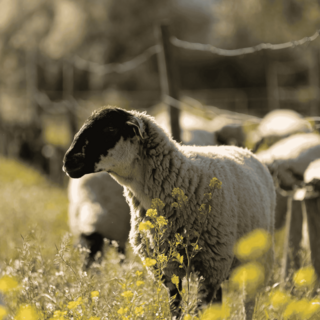
Sustainability
The wineries within the Wilson Daniels portfolio are dedicated to growing grapes and producing wines using eco-friendly practices. The adherence to these strict measures is self-imposed and/or certified.
Regenerative Farming
Regenerative farming is the only model based on the carbon cycle, which maximizes the vine’s ability to absorb CO2 from the atmosphere and store it in the ground, benefiting the soil and promoting biodiversity. Regenerative farming helps to mitigate climate change and global warming impacts, as well as enhance the natural environment.
Sustainable Farming
Includes the use of compost and natural soil amendments; use of organic or naturally derived pesticides, herbicides and fungicides; hand-pulling of leaves; integrated pest management; and the use of beneficial insects and cover crops. Additionally, advocates the use of chemical intervention only when needed to fight disease, pests or other problems and only in affected areas.
Organic Farming
Organic farming relies on the conservation of soil and water as well as the elimination of synthetic pesticides, herbicides and fungicides. Natural ingredients are used for composting, fertilizing, and fighting pests and disease. Additionally, genetically modified crops are prohibited.
Biodynamic Farming
Biodynamic farming is a holistic (and wholly organic) approach to viticulture based on the philosophy of Austrian Rudolf Steiner, who initiated a series of lectures in 1924 to unveil his ideas. Its main principles are: to respect the rhythm and balance of nature; farm according to a biodynamic calendar; encourage soil health with the use of only natural fertilizer treatments and special biodynamic preparations; create a balanced and diverse population of flora and fauna; recycle all organic waste into the vineyard. Any winery that is biodynamic is also, by definition, organic.
Fish Friendly Farming
Wineries gain Fish Friendly Farming certification after a designated period working towards meeting the program’s objectives, which include complying with all local, state and federal environmental regulations; implementing Beneficial Management Practices; promoting sustainable agriculture and ecosystems; improving water quality and aquatic habitat; and implementing restoration and soil erosion control projects.
Carbon-Neutral Power
Energy demand is reduced entirely or in part by renewable energy sources, such as solar, hydro or wind.
Water Recycling and Reclamation
Water conservation begins with efficient processes to reduce usage. It also incorporates the use of water reclaimed from the winery for other purposes, such as irrigation.
Eco-Friendly Winery Practices
From the building materials to the practices inside, this category includes using efficient lighting and other energy reduction practices; eliminating chlorine; using winemaking or distilling by-products for compost; using recyclable materials for packaging and shipping; and storing wines in naturally cooled areas.
Agricultural Land Preservation
Agricultural land preservation includes protecting non-commercial open spaces and/or participating in local land trust efforts.